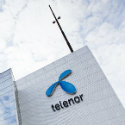
BARCELONA -- Mobile World Congress 2016 -- European Union legislation on the thorny topic of net neutrality could undermine one of the business cases for investing in 5G and NFV technologies, according to Bjørn Taale Sandberg, the head of research for Telenor Group (Nasdaq: TELN).
The Norwegian incumbent is particularly interested in the business opportunities associated with network slicing, whereby services meeting specific performance requirements could be designed for particular vertical markets.
"Everyone is looking into NFV now to be able to do this network slicing," says Sandberg. "If regulation doesn't allow you to do that then you forego an opportunity."
Because 5G technology promises much faster and lower-latency connections than 4G, it could open up a considerable opportunity for operators to provide a variety of differentiated network services to their customers.
While the latest EU regulations on net neutrality offer scope for providing "specialized services," there is some disagreement in the industry over what this actually means in practice.
Germany's Deutsche Telekom AG (NYSE: DT) believes the legislation could allow it to charge so-called over-the-top players for an assured level of service. Telenor is more skeptical.
As a consequence, the operator is building a services strategy around two distinct scenarios. "One view is that we'll be able to launch end-to-end 5G services that are differentiated on latency and speed," says Sandberg. "If that becomes possible then telcos have an opportunity to have several tiers of pricing."
If regulation turns out to be a barrier to such moves, the Norwegian operator will be under greater pressure to succeed by slashing costs at its core access business, acknowledges Sandberg. "We will do this anyway but it will be more important," he says.
The Telenor executive reckons even smaller digital players and app developers would be willing to pay for service guarantees, citing his own frustrations as an app developer to support this view.
"I have no say over the network performance, which forces me to spend hours writing code to cater for bad network conditions," he complains. "If I could spend €4 [$4.40] a month extra on my subscription and know that I have at least 250 kbit/s of bandwidth to a customer at any time, I would save a lot of effort."
For more NFV-related coverage and insights, check out our dedicated NFV content channel here on Light Reading.
Besides making the "optimization agenda" more important, adverse regulation could also increase pressure on Telenor to develop services outside its portfolio of access products.
The operator is already providing OTT-like services in some of its emerging markets, where Sandberg believes its existing local presence gives it a bigger opportunity to compete against the web giants than in more developed markets.
"Local content and solutions are going to be important," he says. "It might not be possible or profitable for OTTs to exploit that."
Telenor is already thinking about using machine-learning technologies so that it can offer more personalized services through WowBox, a lifestyle app it has developed in Bangladesh that currently boasts some 1.5 million users. "I believe a combination of machine learning and hardcore network engineering will be key in future because switches will have to be intelligent in a different way from today," says Sandberg.
Nevertheless, Telenor insists that it has moved beyond viewing OTT players as a threat. Instead, it is trying to learn from OTT players as it continues to work on the digital transformation of its own business.
"Our CEO said [to employees] yesterday if you look on OTT as a threat, there is the door; if you look on them as a partnering or learning opportunity then please stay in the room," says Sandberg.
Although Telenor is carrying out trials of virtualization technologies, none of its subsidiaries has yet announced any firm NFV commitments.
Sandberg says the operator remains concerned about some of the risks associated with NFV. "We had an incident last week in Norway because the signaling from a foreign operator brought the switches down and made it impossible for people to make calls," he says. "If the risk of that increases because of virtualization it makes this difficult, so we won't be committing until we're confident it delivers something like 99.999% reliability."
— Iain Morris, 

 , News Editor, Light Reading
, News Editor, Light Reading
About the Author(s)
You May Also Like




_International_Software_Products.jpeg?width=300&auto=webp&quality=80&disable=upscale)







